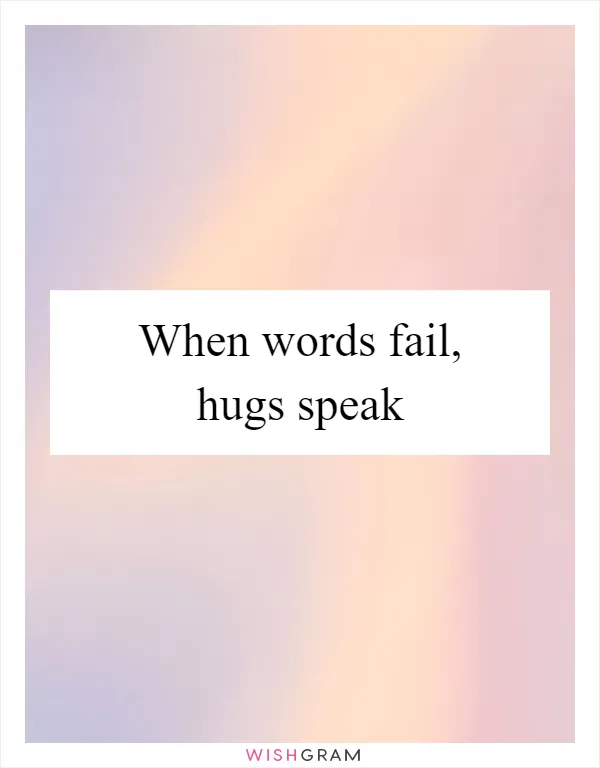When words fail, hugs speak
When words fail to convey our deepest emotions, hugs step in to bridge the gap. Hugs have an incredible power to communicate love, comfort, and support without uttering a single word. They are a universal language that transcends cultural barriers and connects us on a profound level.
A hug is more than just an embrace; it is a gesture that speaks volumes. It has the ability to heal wounds, both physical and emotional. When we wrap our arms around someone, we are offering solace, reassurance, and a sense of belonging. In that moment, we are saying, "You are not alone; I am here for you."
Hugs have a remarkable way of making us feel safe and secure. They provide a sanctuary where we can let go of our worries and find solace in the warmth of another person's embrace. Whether it's a tight squeeze from a loved one or a gentle pat on the back from a friend, hugs have the power to ease our anxieties and bring a sense of calmness to our troubled minds.
Beyond their emotional benefits, hugs also have a positive impact on our physical well-being. Research has shown that hugging releases oxytocin, often referred to as the "love hormone." This hormone promotes feelings of trust, bonding, and reduces stress levels. It can even lower blood pressure and boost our immune system. So, not only do hugs make us feel good, but they also have tangible health benefits.
Hugs are not limited to romantic relationships; they are equally important in our platonic connections. A hug between friends can convey gratitude, appreciation, and a sense of solidarity. It is a way of saying, "I value our friendship, and I am here to support you." In times of celebration or sorrow, a hug can express our shared joy or offer comfort during difficult moments.
In a world where communication is often dominated by screens and keyboards, the power of a hug should not be underestimated. It reminds us of our shared humanity and the importance of physical connection. Hugs remind us that we are not isolated beings but part of a larger tapestry of emotions and experiences.
However, it is essential to remember that not everyone is comfortable with physical touch. It is crucial to respect personal boundaries and ask for consent before offering a hug. Some individuals may prefer alternative forms of connection, such as a handshake, a smile, or even a heartfelt conversation. It is our responsibility to be mindful of others' preferences and find ways to connect that are mutually comfortable.
